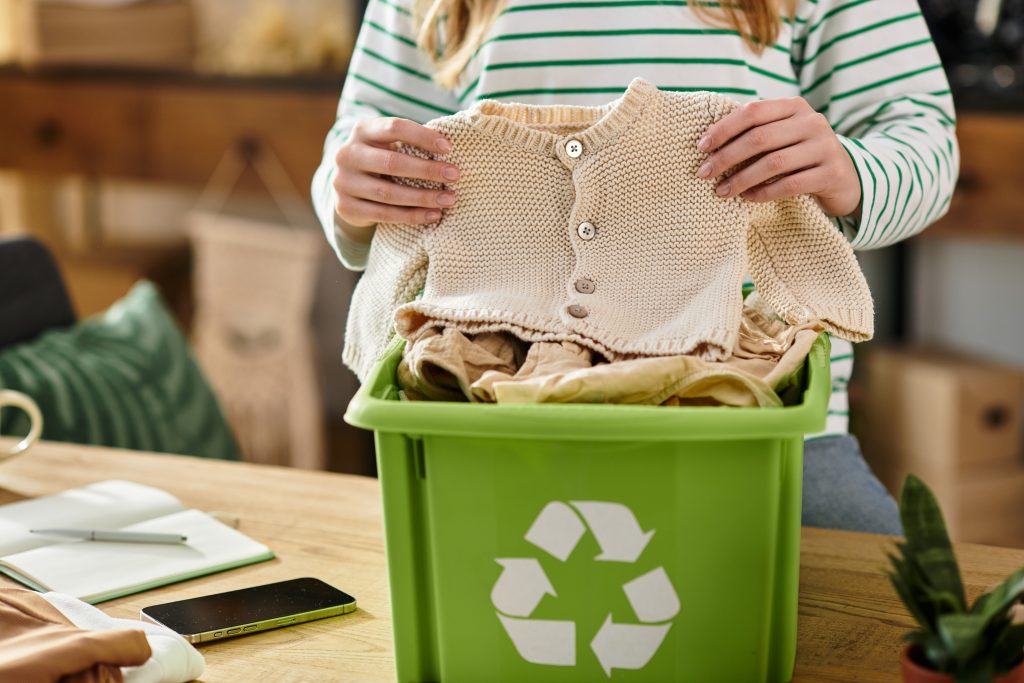The textile industry is one of the sectors that consumes the most resources and has a high environmental impact worldwide. In recent years, sustainability has become a strategic goal in fashion and textile production. At the center of this transformation lies recycled polyester fabric. Producers create this fabric by reprocessing plastic waste. Thus, companies protect the environment and support the circular economy. As a result, recycled polyester is one of the most innovative textile solutions of our time. Marsala Textile plays an important role in this field with its sustainable production vision. In this comprehensive article, you will find all the details, from the definition of recycled polyester to its production processes, advantages, and future role in the industry.

Contents
- What is Recycled Polyester Fabric?
- The Importance of Recycled Polyester
- Production Process and Technological Methods
- Advantages and Disadvantages
- Applications in Fashion and Apparel
- Economic and Environmental Benefits of Recycled Polyester Fabric
- Marsala Textile’s Sustainability Vision
- The Future Role of Recycled Polyester in the Textile Industry
- Conclusion
- Frequently Asked Questions
What is Recycled Polyester Fabric?
Recycled polyester fabric uses PET bottles and other plastic waste in production. Producers first sort the collected plastics, then clean them, and turn them into small pieces. These pieces melt, transform into yarn, and take part in new fabric production. The resulting material maintains the durability and flexibility offered by traditional polyester. Producers consume less energy in this process and need fewer fossil fuels. Thus, they reduce the damage of plastic waste to nature, lower environmental risks, and strengthen the circular economy. Brands use recycled polyester not only in fashion but also in home textiles and technical fabrics. As a result, this fabric offers a strong alternative in both environmental and economic terms. Textile companies open the doors to sustainable production. They also guide the production models of the future.
The Importance of Recycled Polyester
People produce millions of tons of plastic waste every year on a global scale. A large part of this waste mixes with nature and causes serious harm to the environment. The production of recycled polyester fabric plays a critical role in solving this problem. Reintroducing waste into the textile industry reduces the carbon footprint and limits dependence on fossil fuels. Thus, sustainability in the fashion industry stands on a stronger ground. Consumers turn to environmentally friendly products and prefer responsible production practices from brands. In addition, using recycled polyester reduces water consumption and energy demand, preserving ecological balance. As a result, this fabric is not only an environmentally friendly option but also increases corporate reputation and competitiveness in international markets. For this reason, recycled polyester fabric stands out. It also forms one of the building blocks of the sustainable textile vision.

Production Process and Technological Methods
Producers generally apply two methods in the production of recycled polyester: mechanical recycling and chemical recycling. In the mechanical method, companies collect, clean, melt, and spin plastic bottles into yarn. Chemical recycling is based on breaking down at the molecular level. This method costs more but provides higher quality. In both methods, producers aim to bring waste into the textile sector and make new fabric production more sustainable. Technological developments increase the quality of recycled polyester and expand its areas of use.
Advantages and Disadvantages
Advantages:
- Reduces the environmental damage caused by plastic waste.
- Limits the consumption of natural resources.
- Lowers energy use compared to conventional polyester production.
- Creates durable, flexible, and long-lasting fabrics.
- Supports the concept of sustainable fashion.
Disadvantages:
- Production costs may be high in some cases.
- The chemical recycling process can increase energy consumption.
- Compared to natural fibers, it is less breathable for users.
As a result, the advantages are much more prominent than the disadvantages. Therefore, recycled polyester fabric gains more importance in the sustainable textile vision every day.
Applications in Fashion and Apparel
Recycled polyester fabric has wide application areas in the fashion industry. It is often preferred in sportswear, outerwear, accessories, and home textile products. This fabric is durable and offers aesthetic diversity. It also dries quickly, making it common in activewear products. Fashion brands develop eco-friendly collections with recycled polyester. This approach meets customer demand and contributes to the corporate sustainability goals of brands.
Economic and Environmental Benefits of Recycled Polyester Fabric
One of the most important contributions of recycled polyester is economic. Reprocessing waste lowers raw material costs. At the same time, it reduces energy consumption and increases production efficiency. From an environmental perspective, plastic pollution decreases. Carbon emissions drop, and water usage is limited. As a result, the environment is preserved, and the textile industry adopts a sustainable growth model.
Marsala Textile’s Sustainability Vision
Marsala Textile is one of the pioneering companies in the production of recycled fabrics. The company places sustainability at the center of its production process. Thus, it offers solutions that are both environmentally friendly and innovative. Marsala Textile’s collections align with global textile trends. The brand also presents its eco-friendly production approach at international fairs. As a result, Marsala stands out in the industry not only with product quality but also with its sustainable vision.

The Future Role of Recycled Polyester in the Textile Industry
The role of recycled polyester in the textile industry will increase even more in the future. Consumer awareness rises every day. Sustainable production models receive support from international standards and legal regulations. Brands will use this fabric more in their collections to strengthen competitiveness. In addition, technological innovations will improve the quality of recycled polyester fabric. As a result, this fabric will become one of the main building blocks of sustainable fashion.
Conclusion
Recycled polyester fabric is one of the most concrete examples of sustainability in the textile industry. It provides eco-friendly production and offers companies economic advantages. Marsala Textile adopts this vision and directs the fashion understanding of the future. As a result, recycled polyester fabric produces permanent solutions for both consumers and brands. Visit our blog page to read our other articles. Recycled polyester fabric holds an indispensable position in the future of textiles.
Frequently Asked Questions
Is recycled polyester fabric safe?
Yes. When produced with proper techniques, it is a healthy and safe fabric.
How long does polyester fabric take to recycle?
It depends on the production method. Mechanical methods are faster, while chemical methods require longer processes.
Why does polyester stand out in sustainable fashion?
Because its durable, lightweight, and flexible structure makes polyester ideal for recycling.
How does Marsala Textile produce recycled fabrics?
Marsala Textile uses eco-friendly technologies to create high-quality fabrics from PET bottles and recycled fibers.

